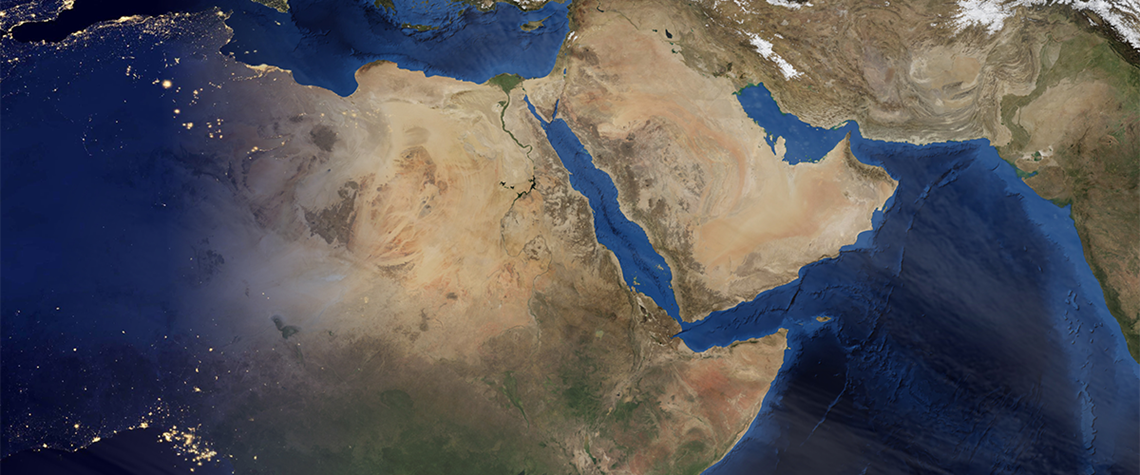Shifting sands alter balance of power in Middle East
The region’s political situation and internal relationships are changing amid the growing influence of Russia and China
The Middle East can be divided into three categories of regional alliances: allies of Iran, allies of Saudi Arabia, and allies of Turkey. The allies of Iran consist of the Assad regime in Syria, Iraq’s federal government, Hamas and Islamic Jihad in Gaza, the Houthi rebels in Yemen and Hezbollah and the Amal Movement in Lebanon. All of these groups have been embroiled in internal crises, including territorial disintegration and political upheavals, as a result of regional competition. The allies of Saudi Arabia include the countries of the Gulf Cooperation Council (GCC)—excluding Qatar—as well as Egypt, Sudan and, to some extent, Jordan. Saudi Arabia also wields significant influence over Sun

Also in this section
3 March 2026
The killing of Iran’s Supreme Leader Ayatollah Khamenei in US–Israeli strikes marks the most serious escalation in the region in decades and a bigger potential threat to the oil market than the start of the Russia-Ukraine crisis
2 March 2026
A potential blockade of the Strait of Hormuz following the escalating US-Iran conflict risks disrupting Qatari LNG exports that underpin global gas markets, exposing Asia and other markets to sharp price spikes, cargo shortages and renewed reliance on dirtier fuels
2 March 2026
The South Asian consumer’s next move could tighten the Middle East oil market overnight
2 March 2026
Canadian independent’s evolving portfolio in Trinidad and Tobago gives it access to the Atlantic LNG market and a close-up view of developments in neighbouring Venezuela







